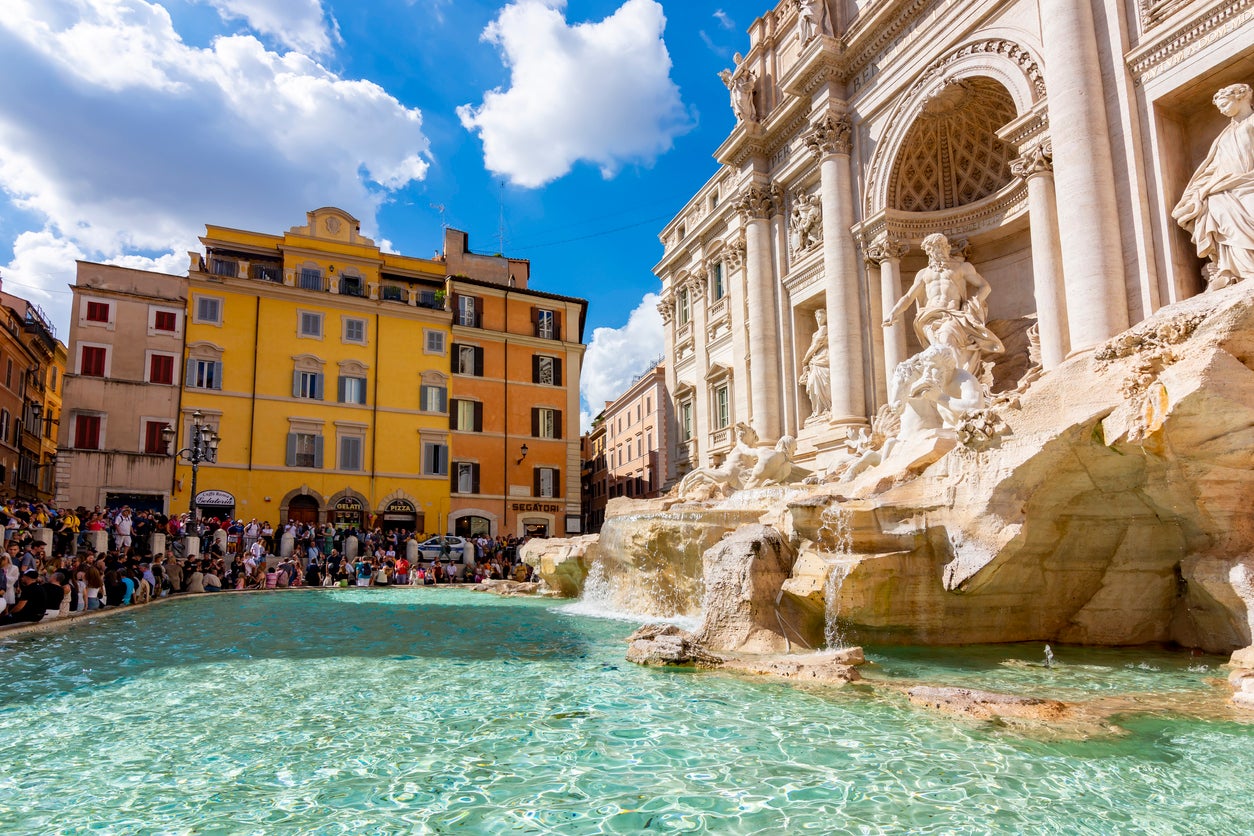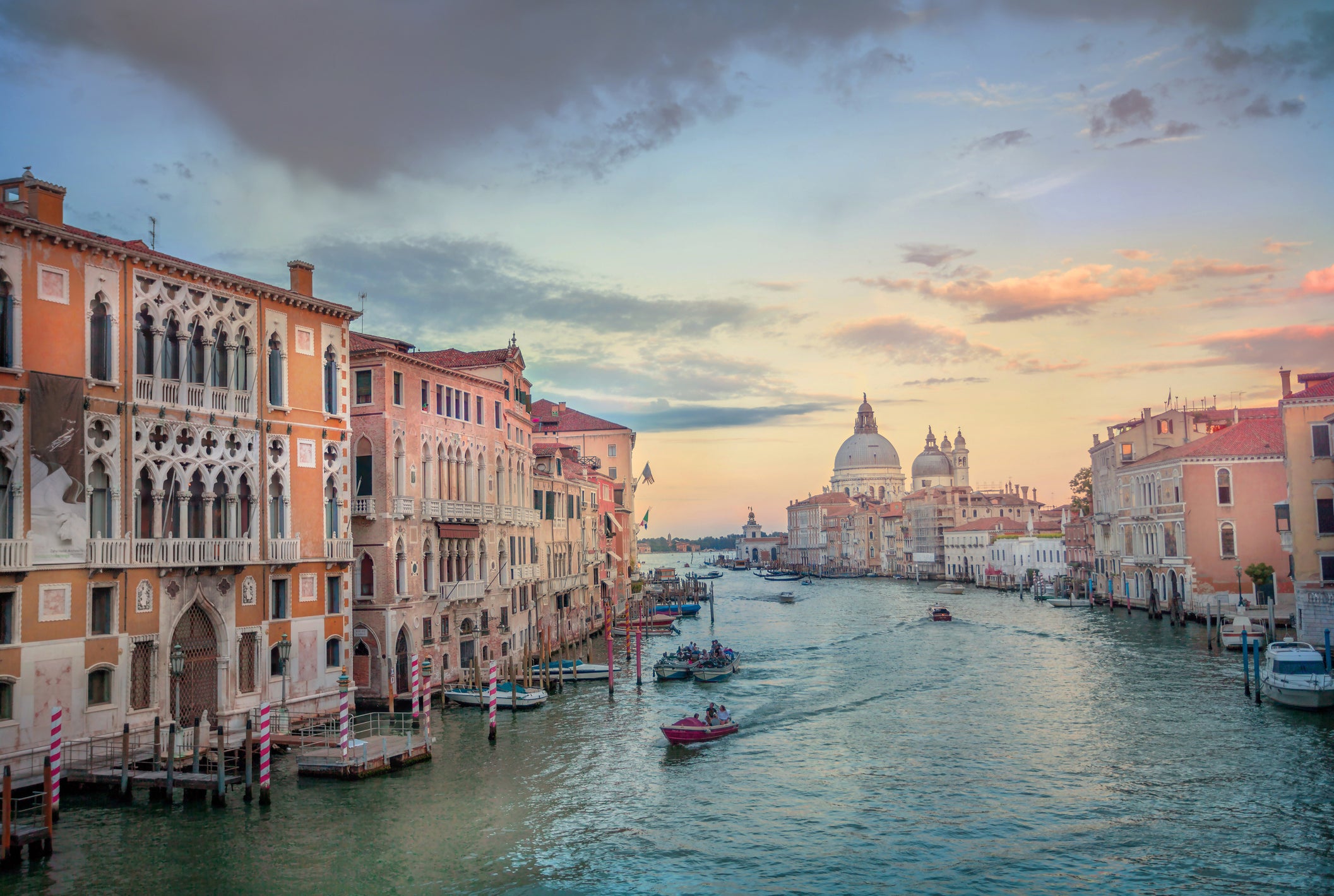Italy travel guide: Everything you need to know before you go
The ‘boot’ is as much loved for its cuisine as it is for its ancient sights, romantic, art-filled cities, rural landscapes and bougie beach towns

Italy has it all. The big boot concentrates some of Europe’s most beautiful landscapes, islands, beaches and lakes, mountains and rolling vine-covered hills, and adorns them all with more art and architecture than anywhere on the planet.
You can go back every year and never see it all. Because Italy has only been as a single country since 1871, each regions has developed its own distinct character, cuisine and wine. Whether you love art or archaeology, fashion or fast cars, or food, wine and la dolce vita, you’ll love Italy.
Best time to go
Italy is a year-round destination. Summers are hot and crowded (the Italians themselves go on holiday in August) but that’s also the time for beaches, festivals and sitting out under the stars. Spring is a delightful time to visit, with numerous events, especially around Easter, while in autumn the colours are magnificent in the mountains and vineyards as the wine harvest takes place. Winter is stellar for skiing and snowsports, opera lovers, and visiting the cities and museums minus the crowds.
Top regions and cities
Rome

Italy’s capital, Rome, is one of the world’s great cities, the magnificent stage for a lion’s share of European history, a palimpsest where ancient, medieval, Renaissance and Baroque landmarks stand shoulder to shoulder. It is the only city that surrounds a sovereign country, Vatican City, yet alongside the grandeur of the Pantheon and St Peter’s, the Colosseum and Trevi Fountain, the Castel Sant’Angelo and Spanish Steps and 900 churches, there is a sense of fun. Hit the lively bars, lick gelato under the parasol pines, and hire a Vespa to pretend you’re in Roman Holiday.
Read more on Italy travel:
Tuscany

Synonymous with landscapes swathed in vines, olives and cypresses that look as if they were lifted straight from a Renaissance fresco, Tuscany is a rare region that achieved a kind of perfection by the 16th century – then had the sense to not change. Tuscany’s precocious capital is Florence, where wealthy patrons, notably the Medici, helped herald in the Renaissance and filled the city with works that changed the history of art and architecture. The smaller art cities – Siena, Pisa, Lucca, Arezzo – and hill towns are jewels, and beaches line the coast when you need a break from all that art and culture.
Venice

The dream city floating on water is almost too beautiful for its own good – in fact, so many want to visit that the city has started charging day-trippers admission. But La Serenissima deserves so much more than a few rushed hours. The Grand Canal, the Doge’s Palace, St Mark’s and its piazza, the Rialto bridge – all the iconic sights take on an extra magic when illuminated at night (and the day trippers have gone). Venice is exceptionally atmospheric in winter, when the mists rise, and you can have its churches and palazzi filled with masterpieces by Titian, Bellini, Tintoretto and Veronese almost to yourself.
The Bay of Naples

Passionate, noisy, chaotic, anarchic, fabulous Naples is the queen of the south, with its unforgettable views across the water to the still smouldering Mount Vesuvius. The volcano’s most famous victim, Pompeii, is only a short train ride away, and more fascinating than ever thanks to the recent excavations. The enormous royal Palace of Caserta with its endless gardens is just inland, while the three irresistible islands in the bay – ritzy Capri, beach-rimmed Ischia and tiny Procida – are a foretaste of the sublime, vertigo-inducing Amalfi Coast that begins just to the south.
Sicily

The Mediterranean’s biggest island is a mini continent, with its own culture, dialect, cuisine and stunning relics of its ancient Greek, Roman, Byzantine, Arab, Norman and Neapolitan past. Palermo concentrates much of the art, but then there’s Agrigento with its Greek temples, romantic Taormina with its Greek theatre overlooking Mount Etna, superb Roman mosaics at Piazza Armerina, Byantine Norman ones at Monreale, and the elegant Baroque towns of Noto, Modica and Ragusa. The small islands of Sicily’s coasts are equally fascinating, notably the volcanic Aeolian islands, where Stromboli erupts every few minutes.
Best under-the radar destinations
Abruzzo

In between central and southern Italy, encompassing the highest Apennines, Abruzzo is the ‘Green Region of Europe’. More than half of its territory is protected in national parks and nature reserves, home to brown bears, wolves, golden eagles, porcupines and chamois. It’s an ideal destination for an active holiday, with its walking and cycle paths, mountain lakes, beaches, ski slopes, striking hill villages and archaeological sites.
Friuli-Venezia Giulia
This little triple-barrelled region borders Austria and Slovenia, and is only a 40-minute drive from Croatia. Its capital, Trieste, was once the chief port of the Austro-Hungarian Empire, lending it a unique Mittel European atmosphere and cuisine. There’s arty Udine, long part of the Venetian Republic, and Aquileia – one of the best preserved Roman cities – plus sandy beaches and rolling hills that produce some of Italy’s finest white wines. In the north tower the fanatical Friulian Dolomites and Julian Alps and in between, you’ll find the Tagliamento, one of the last wild rivers in Europe.
Valle d’Aosta

This emerald valley in Italy’s far northwest is framed by Mont Blanc and the Matterhorn and majestic Gran Paradiso National Park. Smallest and least populated of Italy’s regions, where both Italian and French are official languages, it’s dotted with castles, chalets and happy cows with huge bells who produced the valley’s famous Fontina cheese. The pretty capital, Aosta, is full of Roman-medieval charm.
Basilicata
The mountainous instep of the Italian boot was long unknown to most tourists, although it’s just beginning to be discovered. There are small beach resorts along the Ionian and Tyrrhenian, some beautiful villages, lovely Aglianico del Vulture wine, and the fascinating city of Matera, where people lived in caves in a river canyon into the 20th century; today it’s a Unesco World Heritage Site and stand-in for ancient Jerusalem in a number of recent films.
Best things to do
Eat in Bologna
The capital of Emilia Romagna (think prosciutto, Parmesan, tortellini, mortadella, etc), Bologna is foodie heaven. Its Quadrilateral market is a gastronomic epiphany, and will whet your appetite for a dish of tagliatelle alla Bolognese – the heavenly origin of spag bol.
Garden hop on the Italian Lakes
Few places on earth can match the gorgeous scenery, villas and gardens that grow in the singular microclimates of Italy’s enormous alpine lakes – Maggiore, Como and Garda. Regular ferries and boat services will get you there – or hire your own boat.

Take in an opera
Along with Italy’s cathedrals of trilling arias – Milan’s La Scala, Venice’s La Fenice or Naples’s San Carlo – there are wonderful summer festivals in Verona’s Roman Arena, Macerata’s Sferisterio in the Marche, Rome’s Baths of Caracalla, and others dedicated to composers, like Puccini in Torre del Lago (Tuscany), Verdi (Parma), and Rossini (Pescara).
Race a Ferrari
Fancy yourself a racing driver? Try your hand on a simulator at the Enzo Ferrari museum in Modena, the capital of Italy’s ‘Motor Valley’. For more Ferrari action, there are factory tours in nearby Maranello, plus the chance to visit the homes of Lamborghini, Maserati, Pagani and Ducati with their museums and factory tours.
Getting around
Italy has a superb rail network, and the high-speed service between the major cities makes taking the train cheaper, more convenient and more comfortable than flying. Frecciarossa (red arrows) trains go up to 300km/h (186 mph) between Turin, Milan, Bologna, Florence, Naples and Salerno, and between Turin, Milan, Verona and Venice. Coaches to towns and villages not on the rail lines are also excellent and usually depart from the nearest train station. In the cities, public transport (metros, trams, buses and, in Venice, boat-buses called vaporetti) are also easy to use.
Money-saving tip
If you aren’t bring the kids, you’ll save hundreds of pounds by avoiding travel during the school holidays, when flight and hotel prices soar. Some major attractions, such as the Uffizi Gallery in Florence, also charge less if you go between November to February.
FAQs
What time zone is it in?
GMT+2.
What’s the weather like?
It can get uncomfortably hot in July and August, especially in the south and Po Valley. Spring and autumn are mild (October and November are the rainiest months); winters require coats, even in Sicily.
What currency do I need?
Euros.
What language is spoken?
Italian, but English is widely understood.
Read more: The best boutique hotels in Rome – where to stay in style for all budget
Join our commenting forum
Join thought-provoking conversations, follow other Independent readers and see their replies
Comments
Bookmark popover
Removed from bookmarks